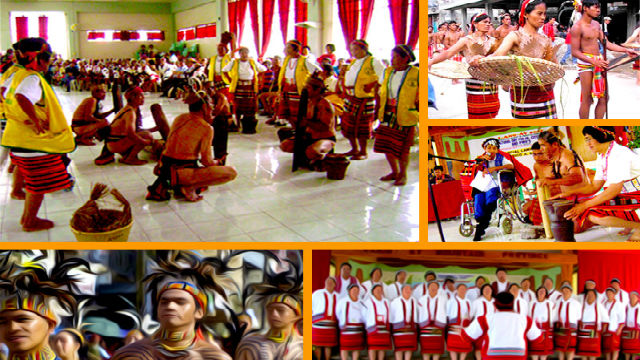BONTOC, Mountain Province – She-eb is a cultural practice of giving an indigenous name to a child by a male elder in the northern most part of Tocucan barangay, Bontoc town of Mountain Province.
As part of the culture, the village folks help in the preparation of the ceremony. The women pound palay, winnow the rice grains while the males go to the mountains and gather firewood.
A day before the rite, the female prepare and cook the tofu. Tofu is a cooked native delicacy made of sticky rice (diket) wrapped with sugar cane leaves and cooked in boiling water. Others may mix the sticky rice with black beans.
In the morning during the ceremony, the father brings with him salted meat and rice stalks to a designated mountain. He then sets fire and performs the wachawad. Wachawad is a ritual where the father calls and invites the spirits of relatives of the child to be baptized to come home to join in the cultural affair.
When the father comes home, the male elders bring rice as gifts to the house of the mashe-eb (child to be baptized). Three pigs will be butchered. The youngest hog shall be the last to be slaughtered where an elder gets blood from it.
The elder marks the forehead of the child with fresh blood and pronounces the traditional name. If it is a male, the elder gives the sikisig, a rattan woven cylinder with feathers of chicken placed in it. On the other hand, the elder gives a necklace made of beads (appong) if the youngster to be baptized is a girl. Accordingly, these garbs shall protect the child from harm, bring good fortune and make him or her strong as he or she grows old.
The mother and the child then dance with the rhythm of the gongs that are played by men. The first chant follows. After it, the tofu and meat shall be served to the old men.
After the second chant, everybody is invited to partake of the food, a combination of soup, rice and pork meat (watwat). After the meal, some may go home to their respective houses while others may exchange pleasantries.
The two mantras contain messages asking the Igorot god Kabunian to guide the child, to make the youngster healthy and to bequeath him or her good fortune.
By Francis B. Degay













